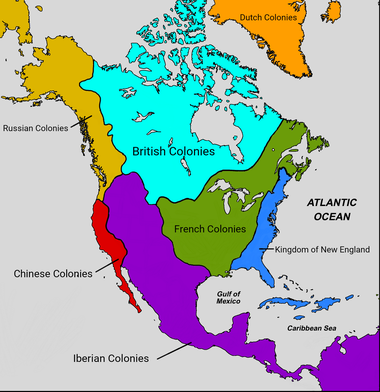
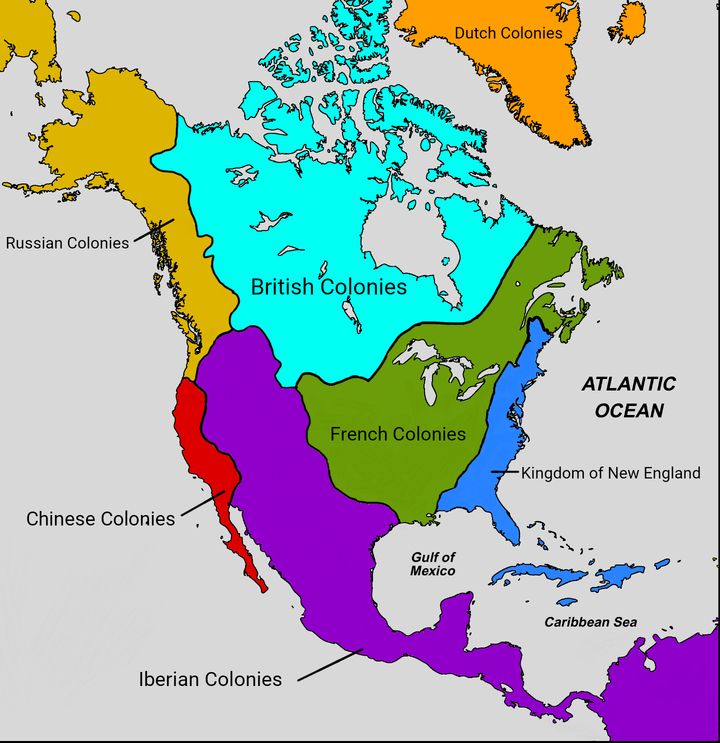
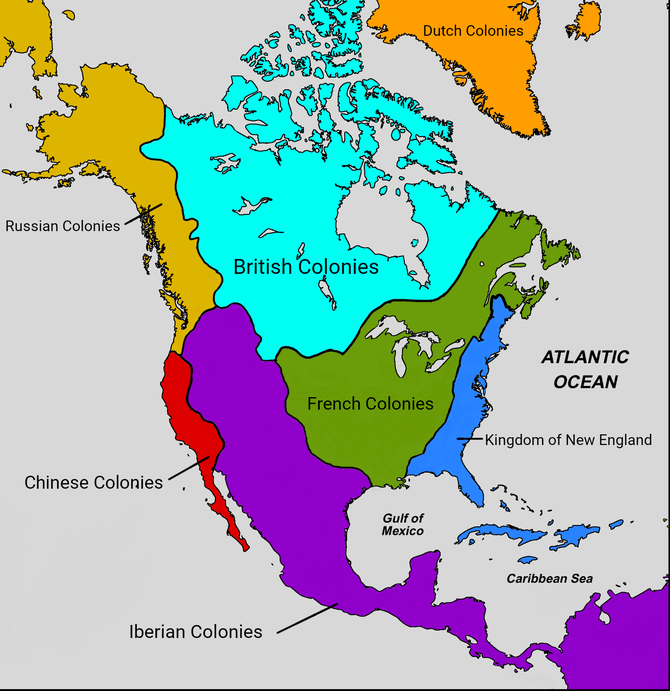
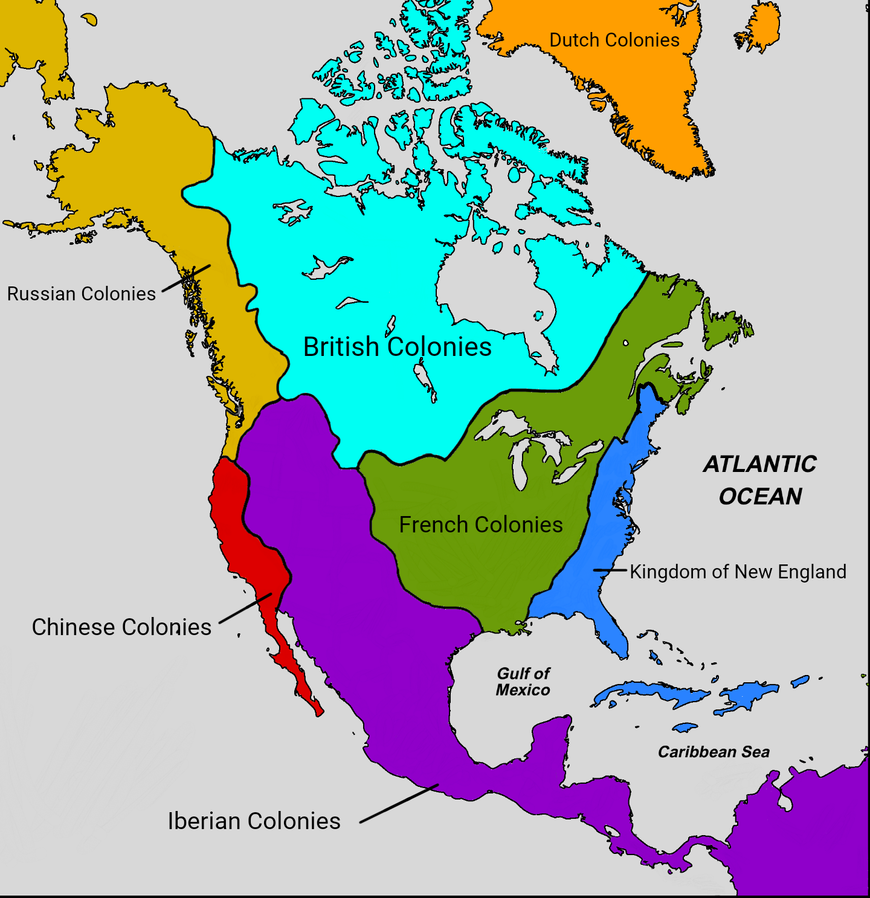
The history of colonization in general, as well as the English colonies in North America in particular, is not something isolated, although it certainly has its own specificity. The history of colonialism is an integral part of the world-historical process. The development of England's colonial expansion in North America is organically linked with its economic and political history, the struggle of classes and parties, and with the role of England in the system of international relations. In America, the European colonizers found a very poorly populated country, whose inhabitants were mostly in a state of primitive society. The leading role on the whole continent for a long time belonged mainly to the pure descendants of Europeans, thanks to immense immigration from Europe. However, it was from the confusion of the newcomers with the native, as well as African Americans imported from Africa, that a new nation of Americans was formed in America, and the American people were formed.
The political development of American colonies, formed by settlers from England, was initially based on the political and religious traditions of the metropolis (Grigg, 2008). However, new geographical, ethnic, cultural and economic conditions determined a significant transformation of these political traditions. As a result of such a transformation, the original political development of the North American colonies took place, but the genetic connection between the political thought of the developing colonies and their metropolitan countries was preserved (Grigg, 2008). Very important in the historical sense and the period of liberation of the American colonies is the last quarter of the XVIII and the first quarter of the XIX century (Grigg, 2008). The first to be liberated was the British colonies in North America, organized in the federal republic of the United States, the state of the New World, which was the most dynamic in its economic development, political might and its internal freedom, having managed to outstrip many nations in Europe in a short time (Grigg, 2008).
The formation of the political system of English colonies in North America was influenced by the religious and ideological ideas of Protestantism. At the first stage of colonization, the development of North America was a matter for private individuals and groups who received appropriate permits from the monarch of England. Differences in the social look of these groups and individuals predetermined the difference in colonization trends (Grigg, 2008). Conventionally, among the pilgrims, immigrants who settled the English colonies in North America, this period can be divided into three main groups: joint-stock companies of the bourgeois type, founded corporate colonies, rushing overseas in search of markets, profits, sources of raw materials; Protestants, the founders of the royal colonies, hoping to implement their principles in the new homeland; aristocrats who founded proprietary (proprietary) colonies, who thought about extensive feudal possessions. The starting opportunities of all three were more or less equal, but the New World, as it quickly turned out, favored the development of colonies of the bourgeois type (Grigg, 2008). The political system of corporate English colonies in North America was mixed. The key figure in the management system of the colonies was the governor appointed by the English king (Forest, 2013). To govern the colony, the governor convened the House of Burgesses - a collection of the richest families of the settlement) (Grigg, 2008). In 1619 there were two events that had a significant impact on the whole subsequent history of the political development of English colonies in North America (Grigg, 2008).
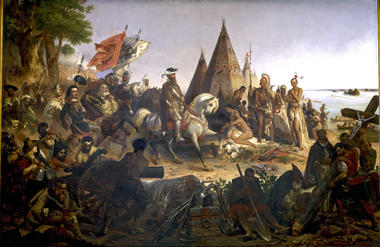
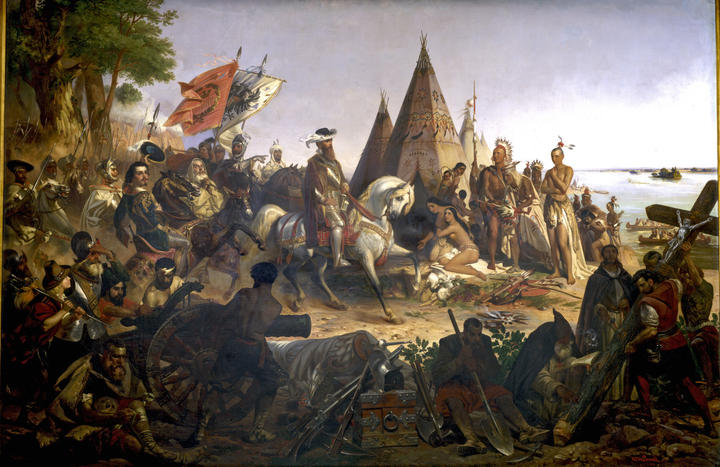
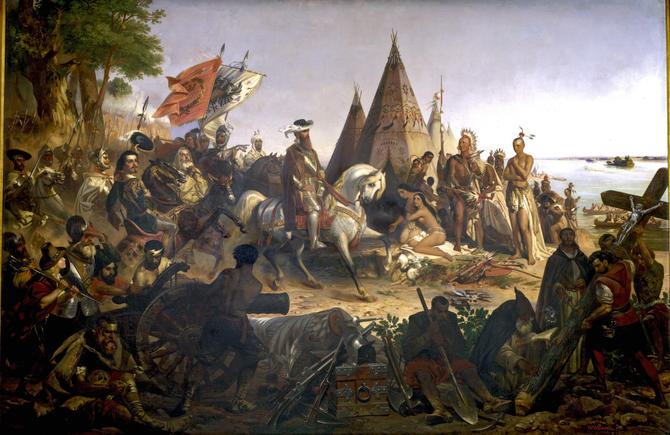
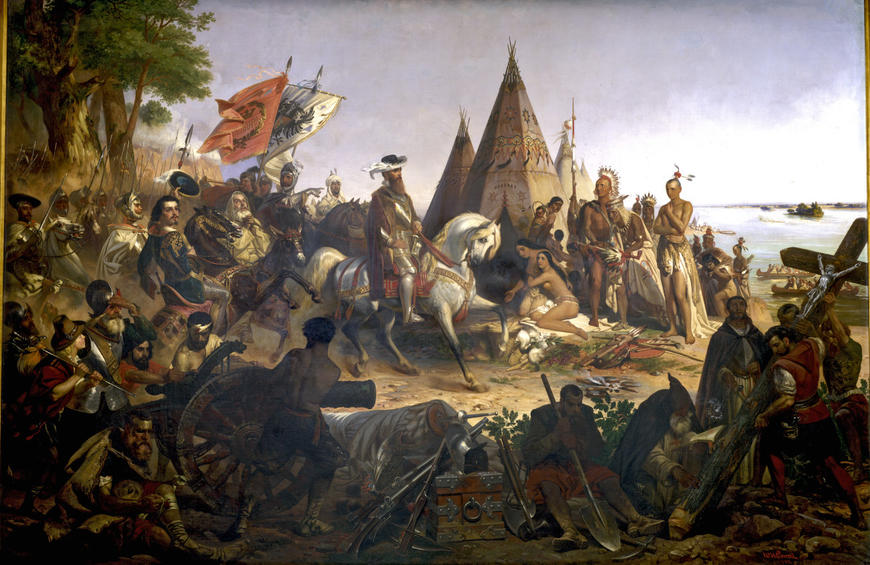
In 1619 in Virginia arose a representative government, it was imported and the first black slaves (Grigg, 2008). These two important events, which differ in meaning, occurred in the same year, determined for a long time the social and political characteristics of Virginia. The power in the colony, based on advanced and rare for that time representative principles, was concentrated in the hands of wealthy settlers, primarily landowners engaged in the production of tobacco.
The colony of Massachusetts Bay was founded in 1630 (Forest, 2013). In those years groups of English Puritans began to leave England and joined the Massachusetts Bay. Massachusetts is a state that was considered multinational since the most emigrants were families with children from England and other countries. Also, Massachusetts has the second name “city upon a hill”, which denoted the religious orientation of the population (Forest, 2013). Massachusetts is one of the most progressive states. From Massachusetts, the abolition of the death penalty began. Massachusetts can be considered the leader of the American Industrial Revolution. Light industry, paper production, machine-tool construction actively developed in the state. Also, the state was one of the first to start the construction of the railways. When England established colonies in North America, English laws were transferred to America. For example, if they lived in Massachusetts or Virginia still considered themselves English subjects. Farmers, traders, and loggers were united in the British trading net (Lorenzo,1864). After the victory in the Seven Years' War of 1756-1763, Great Britain gained supremacy in the North American continent (Lancaster, & Plumb, 2001). Now it owned not only 13 colonies along the Atlantic coast (up to Georgia in the south), but also the lands conquered from the French in the north are part of modern Canada (Forest, 2013). However, soon a new test came to Britain - the inhabitants of the colonies rose up against its government. The War of Independence (1775-1783) in America is considered to be a revolution or, as it is also called, the American Revolutionary War, which pursued two goals: to win national independence and to eliminate obstacles that hampered the development of American capitalism (Lancaster, & Plumb, 2001). There are political and economic reasons that led to the American Revolution. Since all the colonies were joined to the UK, soon the UK began to exploit them. Namely, to introduce laws and tax everything. Therefore, the economic reason is that Great Britain used its colonies. Economic reasons entailed political. One of them is the strengthening of control over the trade of colonies. In the same year, 1763, the government prohibited the colonists from settling west of the Appalachians (Forest, 2013). And the tax increase was the “last straw” that served as the beginning of the revolution. The population of the colonists was divided into two groups: “Patriots” - supporters of independence and: “Loyalists” - opponents of America's independence (Lancaster, & Plumb, 2001). Among the patriots were mainly farmers, small traders and blacksmiths who lived in New York, Pennsylvania, and Virginia, as well as the planters of Virginia and South Carolina. The ranks of the Loyalists included large merchants of port cities - Boston, Charleston, New York, fur traders and administration officials (Lorenzo,1864). The “Loyalists” did not accept the idea of an uprising and considered the resistance of the British authorities to treason. It was the political system of Massachusetts that influenced the relationship between white and Afro-Americans. Since all over the world African-Americans were slaves, the indigenous people and white emigrants perceived them as second-class people at the beginning. They understood that under the circumstances the revolution was inevitable, they did not see in it pragmatic measures against the colonialists. They predicted chaos, the power of the crowd and tyranny. The groups were not divided on social grounds, there were both poor and rich. Among the “Loyalists” were immigrants from among the Scottish settlers (Lorenzo,1864). After the war, about five hundred thousand Loyalists remained in the territory of the thirteen colonies, 78,000 fled to Canada, Britain, Florida and West Indies (Lancaster, & Plumb, 2001). A protest action of American colonists was held in Boston harbor. She got the name “Boston Tea Party” in history. May 10, 1773, the “Tea Law” was adopted, which restored the full refund of duties of the East India Company for tea imports to England (Forest, 2013). One of the main results of the war should be considered the recognition by Britain on September 3, 1783, of America's independence (Forest, 2013). The main result of the revolution for the colonists was that the white male population of America received more political rights. For the overwhelming majority of the country's inhabitants - women, slaves, American Indians and African Americans - the difference between lawlessness in an independent America and lack of rights in a colonial America controlled by Britain was barely perceptible (Grigg, 2008).